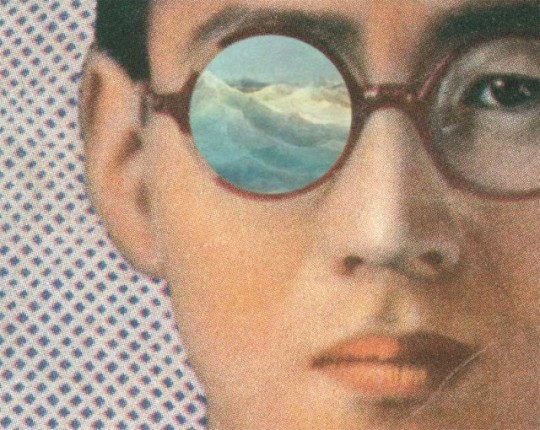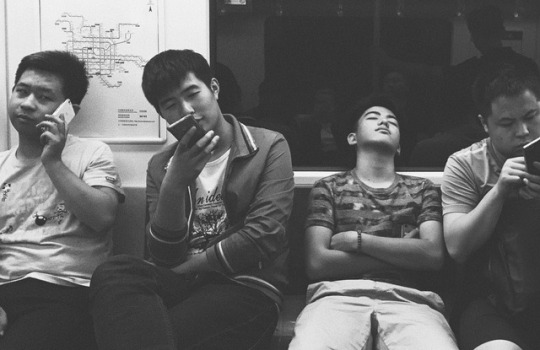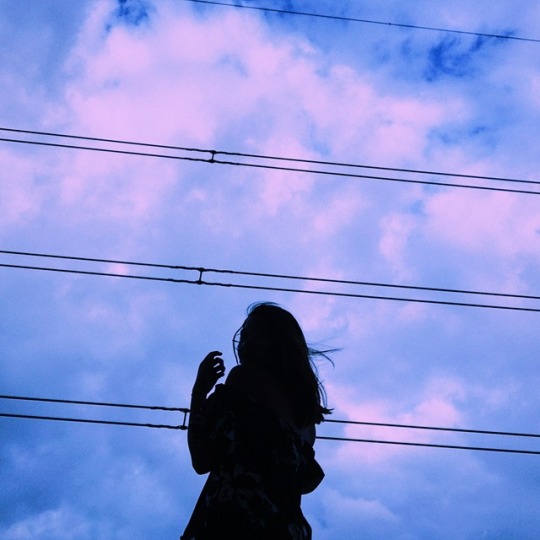Audio
Years and decades later, we’re still here.
(via https://open.spotify.com/track/3VVEUP5550SmFMQkjIlZ7f?si=uVNX_InVRESlB7zwC5rCXg)
0 notes
Text
I want to speak to Kafka

I’m reading again.
A friend of mine (hi bernienie!), has been reading a lot this quarantine and I thought maybe I should too. With my–surprisingly–current disinterest with Netflix or any activity that entails mindlessly scrolling on and staring at glass, perhaps now is a good time than any other. I’ve had this book for years, I bought my secondhand “Kafka on the Shore” at a quaint bookshop the last time we were at Singapore. That trip, sometime 4-5 years ago, I traveled to an overseas country alone for the first time to meet my father where he used to work. Unrelated, but it feels right to mention given the fact that I’m about to talk about a Murakami novel.
I’m reading again. I say this again because it’s been ashamedly years and years ever since I finished a book, much more read outside of school and work, and it feels–I am about to say nice, but right, seems to be the better word. Reading, after all, has always been my first love. Way before dance and theatre, books, by way of my mother, have always been the first that welcomed and introduced me to the world.
Even then, I felt myself tiptoeing around having to read again, all the more fiction as odd and out worldly as that of Murakami’s. I was afraid my rekindled interest in this hobby is just a phase (I still am) and it worries me that the moment I lose interest, again, it’ll be years until it returns. This is why, for the first few pages, my guard was up. Murakami, by way of his characters, loves to meander, and you wonder what he means, what it’s for, and where it’s meant to lead you, but as early as less than half of the book, you realize that the characters have no idea either. I think this is where Murakami loses some of his readers, and almost lost me. I read my first Murakami novel 5 years ago, “Colorless Tsukuru Tazaki and His Years of Pilgrimage”, and I remember flipping to the last page in shock. I really thought I had another chapter to go until the end. That was it? I thought. What was that for? Yet I say this with awe, admiration, wonder, and melancholy.
Many of us enter the world of fiction through whatever medium with a timed tolerance for ambiguity or uncertainty. We expect and accept them for only as far as it takes to introduce and create conflict, but never near or beyond the end or the supposed resolution. For the most part, we consume fiction to escape our seemingly unceasing realities, so what is there to appreciate in texts the only seek to show us the same? But in Murakami’s oddest way, this, I realize, is what captivates me. The usual query of “what happens next?” surprisingly gives me more comfort than doubt and discouragement, as I surmise that Kafka and Nakata is asking the same question in their universe way beyond what is tangible for me on paper, and this is what pulls me in. Because in this running from and towards the unknown, despite the isolation and occasional desolation, what comes in between and after are the characters’--by way of Murakami’s--wisdom.

I’m the type of reader who marks pages through dogears, and if a quote sticks with me I underline it with anything nearby. I apply heavy hands on my books, and I like to excuse this by thinking that this is how I express my care and gratitude for it. I also like to think that the ruggedness it dons in the long run mirrors the journey I take with it. And with my secondhand Kafka, within its already worn out body are the dogears I fold for pages with lines that I want to remember. Here are some of them. They’re a lot, I realize, and I’m only halfway through. At almost every other page, the characters teach me something new. Sometimes, they also open doors to questions or thoughts in my mind that I’ve set aside or forgotten even existed.



I encountered this last one just today. Last night, in the spectrum of well to melancholy, I was floating just a little beyond the halfway point to the latter. I read Kafka most of the afternoon and had a feeling it was what brought me there. Night came and I surprised myself by choosing to continue Kafka over watching Mindhunter with Mama because I wanted to hover over the same spot just for a little longer. I woke up today at 12 noon with such emotion having faded away, but reading about America’s racism brought me back to that halfway point and pushed me even further. I cry over this black woman’s cries of “No Justice, No Peace”, and I find myself turning to Kafka for escape and a little bit of comfort if possible. Magically, I wasn’t met with both, but more.
“Kafka, in everybody’s life there’s a point of no return. And in a few cases, a point where you can’t go forward anymore. And when we reach that point, all we can do is quietly accept the fact. That’s how we survive.”
I haven’t even processed what it meant but I already found myself crying again. Are we in this point of no return? I ask myself then. Why the desire to turn to a work of Murakami for escape? Much less comfort? I ask myself now.
“When someone is trying very hard to get something, they don’t. And when they’re running away from something as hard as they can, it usually catches up with them. I’m generalizing of course.” “If you generalize about me then, what’s in my future? If I’m seeking and running at the same time.” “That’s a tough one,” Oshima says, and smiles. A moment passes before he goes on. “If I had to say anything it’d be this: Whatever it is you’re seeking won’t come in the form you’re expecting.”
I wanted to run from the world’s pains, to seek comfort and escape all at the same time, and indeed, it came in the form I least expected. I wasn’t able to escape reality per se, nor was I comforted by what I just read, but I found a sense of stability. A grounding in the truth with a sensation that I find could be a cousin of comfort. Escape, in a way implies some sort of cowardice, and comfort, at this time is almost improbable. Yet in Kafka on the Shore, I unexpectedly found steady hands that held me safe and still. In Oshima, I heard a voice that reminded me of what is more necessary than escape and comfort--truth. And this is a nudge I didn’t know I needed to keep me going.
Last night, after switching off my reading light, bringing my comforter over me, and priming myself to sleep, like a door that naturally, slowly, sways to a close and kisses the hinges of its doorway, it dawned on me how film, theatre, or any other animate and visual form of medium will always be somewhat inferior to books as a means to escape. In any of the former, complete escape is impossible because what you see is still human. Although the mind has the temporary power to suspend its disbelief, the eye, I don’t think can ever deny that it is seeing humans, actors, dimensional objects that still have relations and associations beyond the world of whatever film or play is being consumed, deeming true escape from one’s reality impossible.
But words, literature, are an entirely different kind of entity. Entity, being the primest word. Christian Benitez, a poet, all around writer and Filipino professor I adore and admire, has always believed and said that words are alive, tangible, thus, entities. I thought I understood part of what he means, but I also thought I’d probably never truly understand it in its fullest. But I think I see it now (although still partly). Words are as alive, true, and real as anything tangible. The persons, voices, sounds, images, places, sensations, and emotions it creates in our imaginations are as valid and as real as the world we live in. Even more real, perhaps. This could be why escape done by means of language will always be more effective than that of the visual.
Laging nakakakapit ang mga imahe sa mga mundong nagagalawan at ginagalawan natin, ang mga salita, hindi. Matapos itong isulat at palayain sa mundo, “may sariling buhay na ito,” ika-nga ni Benitez. May sariling mundo ang mga salita, na kasing buhay at marahil mas buhay pa nga sa atin.
To reading more, hopefully beyond this quarantine. To reading for more than escape, but to become closer to the truth, regardless of both the comfort and discomfort.
0 notes
Photo

"Quick, put your phone down, stop it with the photos for a while. You want to hold on to experiences? Then do it now. Hold on right now. Keep your eyes open. Wide open. No, your eyes are not open. Not when some lifeless, rectangular, artificial, manipulative contraption is blocking your sight and showing you an altered, filtered, idyllic picture. What you are supposed to see is not idyllic. What is in front of you is never always idyllic. But that is what makes it true, and therefore worth seeing. Worth holding on to. Hold on with senses heightened. When your peripherals cease to be just their name, you are doing it right. Hold on. You cannot do that when you are gripping a tool you are with every waking minute of every day, tighter than you might be able to grasp a cemented pillar a Chinese royalty may have once touched eons ago in the Forbidden City. Hold on. And then, you let go. Let go after. You have to. You will find that the world will still spin, even quicker, when you grow still. But don't you do it now. Because that is what you are doing right now with your machinery, you are letting go.
Afraid you will forget? That is okay. We all do. There is only so much our delicate, at times selfish mind can carry. But know this, you will remember. You will remember one day, an image, a smell, a feeling, a thought, the jolt in the bus when the driver hesitated to beat the red light, the immaculate cool force of the air from the vents on your head as you sat on the bus after you trudged underneath the passionate sun, the tightness of your bottom's garter on your stomach after two very heavy meals, the throbbing on your feet you did not dare mistake as pain but a loud reminder that you are grateful. That despite having been surrounded by characters and a language you frustratingly do not comprehend one bit, you are grateful because there is now a desire in you to strive to understand. Grateful you are with the people you say make you realize you are just as thankful to still be breathing. Grateful you are breathing both the same and different air you breathe on your homeland.
You will remember something because you did what I told you to do when against the oddest of odds, despite the sea between our homelands, despite the 21.5 billion other people you could have seen, despite the 1.78 million other people I could have glanced at, for one fleeting second, our paths crossed. You held on. And that is already more than what some of us can do. Quick, hold on."
He said. At least, that's what I think he meant.
0 notes
Photo

Oh, but it is louder with my eyes closed, more deafening in my sleep. In my consciouness there is methodical commotion, in my oblivion, there is only noise.
0 notes
Photo

The heavens have resembled hell. Still, she stands, steady, unflinching, and unyielding. Not once does she waver, promising only to fall when her fingertips graze the sky.
0 notes
Photo

The burden of Breathing: Exhale, release all anguish. Inhale, forced to carry them again.
0 notes